Resolve to put all these anticipated books on your reading list
I started compiling this list of anticipated books a couple of years ago, when I was having trouble finding forthcoming books by women of color that I could read and review. It occurred to me that if I was having trouble, others almost certainly were, too.
Here, again, are 2019 books by women of color, as well as by nonbinary people of color: novels, collections, memoirs, and anthologies. This is the third year I’ve assembled such a list for Electric Literature. I’m delighted to learn that the previous two years’ lists have been among the publication’s most shared pieces of 2018 and 2017; I’m dismayed by how necessary the list still seems to be. May this list become less useful, and may we all read more broadly.
46 Books By Women of Color to Read in 2018
(A word on methodology: this is a round-up of books of prose that I, personally, am anticipating. I know I’ve missed wonderful books — if you see something missing, please feel free to mention it in the comments. And though I love and need poetry, I have less of a sense of what’s forthcoming from poets, so, as in past years, I limited the list to prose. Finally, I used an expansive definition of “writers of color,” a necessarily complex and imperfect category that may have different valences outside the United States or even, sometimes, within it.)
JANUARY
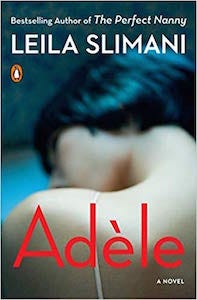
Leila Slimani, Adèle
Adèle is the first novel by Leila Slimani, the heralded Franco Moroccan author of The Perfect Nanny. The winner of the La Mamounia literary prize, and now translated into English, Adèle is about a sex-addicted journalist who organizes her life around her extramarital affairs.
FEBRUARY

Esmé Weijun Wang, The Collected Schizophrenias
The Collected Schizophrenias is one of the most powerful, affecting, rigorous books of essays I’ve read in recent memory. This exploration of illness is splendid; the book is a gift.

Valeria Luiselli, Lost Children Archive
I buy five copies at a time of Valeria Luiselli’s 2016 book, the extraordinary Tell Me How It Ends, because of how often I feel moved to give it to others. Lost Children Archive is her fifth book and third novel, and it follows a family driving from New York to the United States–Mexico borderline.
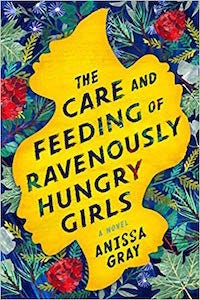
Anissa Gray, The Care and Feeding of Ravenously Hungry Girls
Terry McMillan says she was “immediately taken by the power and honesty of Anissa Gray’s voice” in this debut novel about a mother and father who are arrested, and about the family members who come together to try to raise the couple’s teenage daughters.

Chloe Aridjis, Sea Monsters
The recipient of the Prix du Premier Roman Étranger for her first novel, Book of Clouds, Chloe Aridjis has written a new book about a girl hoping to find a troupe of Ukrainian performers. Garth Greenwell calls Aridjis “one of the most brilliant novelists working in English today.”

Devi Laskar, The Atlas of Reds and Blues
Kiese Laymon says about The Atlas of Reds and Blues that he’s “never read a novel that does nearly as much in so few pages,” and that the book is “as narratively beautiful as it is brutal.” This debut is about a woman, the American-born daughter of Bengali immigrants, who has been shot by the police and lies bleeding in her driveway.
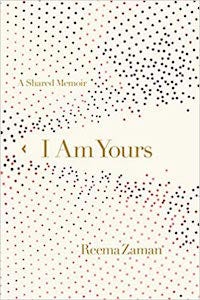
Reema Zaman, I Am Yours
I Am Yours is billed as a “shared memoir,” and it’s about Reema Zaman’s experiences as a writer, actor, and speaker in Bangladesh, Thailand, New York, and Oregon.

Toni Morrison, The Source of Self-Regard
A new collection of nonfiction from Toni Morrison! The book includes essays, speeches, and meditations.

Yiyun Li, Where Reasons End
Written after Yiyun Li lost a child to suicide, Where Reasons End imagines conversations between a mother and a child. Andrew Sean Greer says it’s “the most intelligent, insightful, heart-wrenching book of our time,” and Elizabeth McCracken calls it “an extraordinary book by one of our most extraordinary writers.”
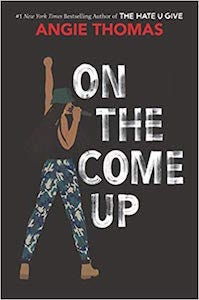
Angie Thomas, On the Come Up
The writer of the beloved The Hate U Give returns with a second novel, this time about a sixteen-year-old girl who wants to be the greatest rapper of all time.
MARCH

Mira Jacob, Good Talk
I’ll leap to read anything Mira Jacob writes and draws, and I’ve been impatiently awaiting this graphic memoir about a woman trying to answer her six-year-old son’s questions about race, family, and belonging. According to Jacqueline Woodson, Good Talk is “a beautiful and eye-opening account of what it means to mother a brown boy and what it means to live in this country post-9/11, as a person of color, as a woman, as an artist.”

Helen Oyeyemi, Gingerbread
Helen Oyeyemi’s seventh book has to do with gingerbread, London, “verbal vegetation,” more gingerbread, and a faraway land called Druhástran. As Michael Schaub says, “Oyeyemi seems to be incapable of writing anything that’s not wholly original.”

Laila Lalami, The Other Americans
Laila Lalami’s previous novel, the incandescent The Moor’s Account, was longlisted for the Man Booker Prize and was a finalist for the Pulitzer Prize. In her new novel, The Other Americans, a Moroccan immigrant in California is murdered, and a town’s and family’s secrets are gradually revealed.

Namwali Serpell, The Old Drift
The Old Drift is the first book from the Caine Prize-winning Namwali Serpell. Taking place in Zambia, this multigenerational novel is drawing laudatory comparisons to Gabriel García Márquez’s One Hundred Years of Solitude.

T. Kira Madden, Long Live the Tribe of Fatherless Girls
I’ve been excited to read T. Kira Madden’s Long Live the Tribe of Fatherless Girls ever since I first heard her read last spring. Madden’s debut memoir recounts her coming of age as a queer, biracial teenager in Boca Raton, Florida.

Lilliam Rivera, Dealing in Dreams
Dealing in Dreams is a fast-paced novel that follows on an all-girl group called Las Mal Criadas, and Daniel José Older says it “pulls no punches, launching us on a wild, relentless ride through the cutthroat streets of this brilliantly realized dystopian world, where hard choices can tear even the closest allies apart.”
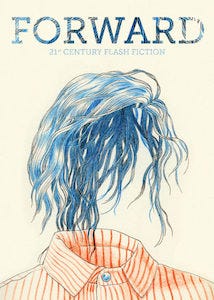
Megan Giddings, ed., Forward
Forward is an anthology of flash fiction and craft essays by writers of color, edited by The Offing’s fiction co-editor Megan Giddings. With contributions from writers including Pam Zhang, Ursula Villarreal-Moura, and Bix Gabriel, Forward looks to be a valuable addition to both personal and classroom bookshelves.
APRIL
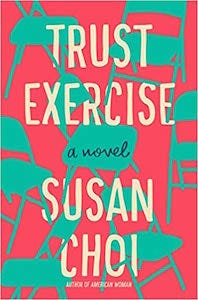
Susan Choi, Trust Exercise
As soon as I finished reading an early copy of Trust Exercise, I hurried online, desperate to talk about the novel with anyone else who’d also read it. It’s a startling, perplexing, fascinating book by a writer I’ve long been—and will always be—eager to read.

Angie Kim, Miracle Creek
Miracle Creek is a courtroom thriller about a Korean immigrant entrepreneur and a murder trial. According to Alexander Chee, this is “a bold debut novel about science and immigration and the hopes and fears each engenders―unforgettable and true.”

Kali Fajardo-Anstine, Sabrina & Corina
Kali Fajardo-Anstine’s debut story collection focuses on Indigenous Latinx characters living in Denver, Colorado. “Comparisons came to mind: the Alice Munro of the high plains, the Toni Morrison of indigenous Latinas — but why compare her to anybody?” says Julia Alvarez. “She is her own unique voice, and her work will easily find a place, not just in Latinx literature but in American literature and beyond.”

Ayşegül Savaş, Walking on the Ceiling
In this novel set in Paris, a Turkish woman starts taking long walks with a British man she meets outside of a bookstore. Katie Kitamura calls it “an elegant meditation on grief, identity, memory and homecoming.”

Grace Talusan, The Body Papers
The Body Papers is a memoir about abuse, immigration, cancer, and mental health. Celeste Ng says that “Grace Talusan writes eloquently about the most unsayable things: the deep gravitational pull of family, the complexity of navigating identity as an immigrant, and the ways we move forward even as we carry our traumas with us.”
MAY
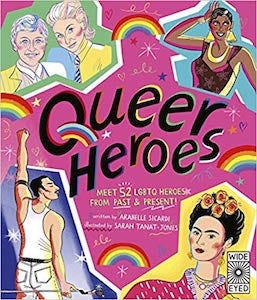
Arabelle Sicardi, Queer Heroes (illustrated by Sarah Tanat-Jones)
A few months ago, as soon as my brother and sister-in-law had their first child, I panicked, went to the internet, and asked it “how to be a feminist aunt.” So far, my answer has been to buy the child a lot of feminist books. I’ll read anything Arabelle Sicardi writes, and I’ll surely pick up their Queer Heroes, which is a series of portraits of writers, artists, activists, and innovators.

Chia-Chia Lin, The Unpassing
The Unpassing is a novel about a Taiwanese immigrant family trying to survive outside of Anchorage, Alaska. In Esquire, Adrienne Westenfeld says that Chia-Chia Lin “resists received wisdom about the American dream to craft a family saga about the difficulty of grieving far from home.”
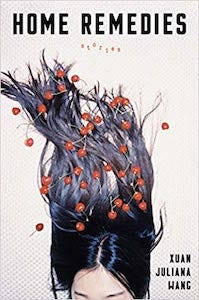
Xuan Juliana Wang, Home Remedies
Called a “radiant new talent” by Lauren Groff, Xuan Juliana Wang has written a debut collection about Chinese millennials. Weike Wang says these stories “surprise and challenge in wonderful, wonderful ways.”

Yoko Ogawa, The Memory Police
Plants, animals, objects, and body parts are disappearing, and almost no one notices. The few who do fear the memory police, who want the lost objects to stay forgotten. Yoko Ogawa is a versatile magician, and The Memory Police is sure to dazzle.

Helen Hoang, The Bride Test
Helen Hoang’s The Bride Test is about a Vietnamese American man whose family returns to Vietnam to find him a bride. Hoang’s first novel, The Kiss Quotient, was a hit that Roxane Gay called “original and sexy and sensitive.”
JUNE

Catherine Chung, The Tenth Muse
The Tenth Muse is about a mathematician named Katherine who’s trying to figure out the Riemann Hypothesis, the greatest unsolved mathematical problem of her time. There’s never enough fiction about mathematicians; Catherine Chung’s first book, Forgotten Country, cut my heart open; I want to read The Tenth Muse right now.

Nicole Dennis-Benn, Patsy
Patsy is centered on a woman who leaves Jamaica and her mother and daughter to live in America, and who, as an undocumented immigrant, works as a bathroom attendant and nanny. “A novel that splits at the seams with yearning, elegantly written and deeply felt,” says Esmé Weijun Wang.
JULY

Elissa Washuta and Theresa Warburton, ed., Shapes of Native Nonfiction
This anthology of essays by Native writers uses “weaving techniques such as coiling and plaiting as organizing themes,” and it includes work from writers such as Terese Marie Mailhot and Deborah Miranda.

Jasmine Guillory, The Wedding Party
The bestselling Jasmine Guillory returns with her third novel, The Wedding Party, a romance about two nemeses whose physical attraction to each other seems to keep growing.

Sarah M. Broom, The Yellow House
Sarah M. Broom received a Whiting Foundation Creative Nonfiction Grant for The Yellow House, a book spanning 100 years of her family’s history. The Whiting jury praised it for being “a crucial memoir of life on the margins.”
AUGUST

Jia Tolentino, Trick Mirror
Most readers I know will rush to read any new essay by the incisive, profound New Yorker staff writer Jia Tolentino. Trick Mirror is her first book, and it’s going to be so good.

Keah Brown, The Pretty One
This debut essay collection comes from disability-rights advocate Keah Brown, creator of the #DisabledandCute viral campaign. The essays are about romance, pop culture, cerebral palsy, race, and media.
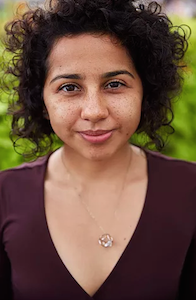
Stephanie Jimenez, They Could Have Named Her Anything
In Stephanie Jimenez’s intriguingly titled debut novel, a Latinx teenager from Queens attends an Upper East Side private school and becomes friends with a rich, rebellious white girl. The book alternates between the perspectives of the two girls and their fathers.

Bassey Ikpi, I’m Telling the Truth, But I’m Lying
I’m Telling the Truth, But I’m Lying is an essay collection examining Bassey Ikpi’s experiences of bipolar disorder and anxiety. Ikpi’s collection was a Publishers Weekly preview selection.
FALL AND AFTERWARD

Roxane Gay, How to Be Heard
A book of writing advice from Roxane Gay. So many of you are going to want to read this.

Carolina de Robertis, Cantoras
Carolina de Robertis has long and reliably been a wise, big-hearted writer and translator, one whose work I seek out. Cantoras tracks five fictional women in Uruguay fighting to live and love despite the restrictions imposed by a ruthless military government.

Carmen Maria Machado, In the Dream House
The fantastically inventive writer of the widely-admired Her Body and Other Parties turns from fiction to nonfiction with In the Dream House, a memoir about her experience in an abusive same-sex relationship.
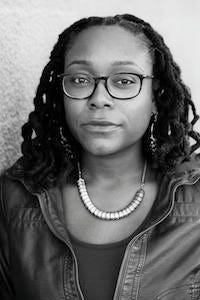
Margaret Wilkerson Sexton, The Revisioners
I loved Margaret Wilkerson Sexton’s first novel, A Kind of Freedom, and her second novel tells two parallel stories, that of an escaped slave who forms a friendship with a white next-door neighbor and of a present-day woman who works as a caretaker for an older white woman.
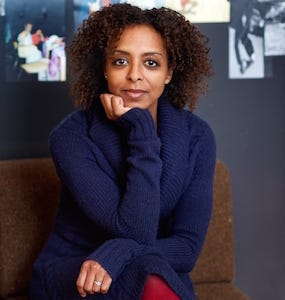
Maaza Mengiste, The Shadow King
Beneath the Lion’s Gaze, Maaza Mengiste’s 2010 debut novel, was deeply moving and hard to forget; now, her next book, The Shadow King, is coming our way. Set during Mussolini’s 1935 invasion of Ethiopia, Mengiste’s new novel recounts the story of an army of Ethiopian women who fight the Italian fascists.

Meredith Talusan, Fairest
Meredith Talusan is another writer whose work I always want to read. She’s a writer and journalist, and an editor at Them, and her memoir, Fairest, will be wonderful.

Jaquira Díaz, Ordinary Girls
Ordinary Girls is a memoir about growing up queer in Puerto Rico and Miami Beach as her family splits and her mother struggles with addiction and mental illness.

Akwaeke Emezi, Pet
Akwaeke Emezi’s first novel, Freshwater, is the compelling story of a Nigerian woman who develops separate selves. This fall, the National Book Award “5 Under 35” writer will publish their first young-adult novel, Pet, about a teen who frees a monster from a painting.

Mimi Lok, Last of Her Name
This story collection depicts Asian outsiders in Hong Kong, British suburbs, California, and Japanese homeless encampments, and it will be part of Kaya Press’s 25th-anniversary list.
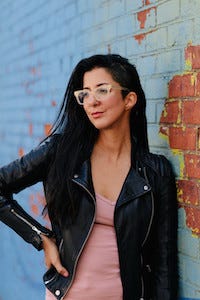
Porochista Khakpour, Brown Album
In Brown Album, Porochista Khakpour brings together essays and reviews about Iranian American life and literature, some of which have previously been published in venues including The New York Times, Los Angeles Times, and The Wall Street Journal.

Meng Jin, Little Gods
Steinbeck Fellow Meng Jin’s first book, Little Gods, is a portrait of a Chinese woman’s migrations. The novel is narrated by the woman’s daughter, the husband she left behind, and a friend.

Dina Nayeri, The Ungrateful Refugee
The Ungrateful Refugee is Dina Nayeri’s first nonfiction book, an account of her journey from Iran to an Italian refugee camp, to Oklahoma, to Princeton. In addition, the book reports on the stories of other refugees and asylum seekers. I love this book’s title, and can’t wait to read the rest of it.

48 Books By Women and Nonbinary Authors of Color to Read in 2019 was originally published in Electric Literature on Medium, where people are continuing the conversation by highlighting and responding to this story.
Source : 48 Books By Women and Nonbinary Authors of Color to Read in 2019









